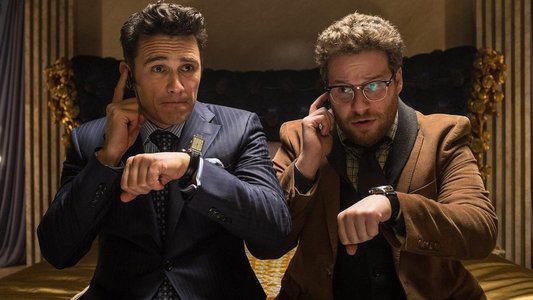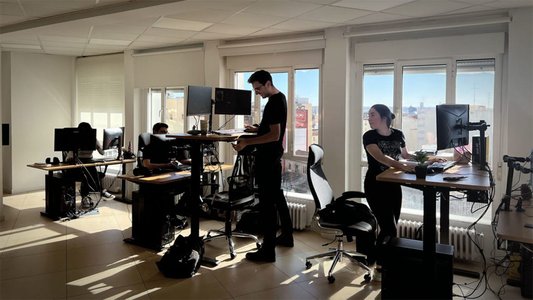This week, our partnership with game criticism site Critical Distance brings us picks from Kris Ligman on topics including the "vulnerability fantasy" offered by games like X-Com, last week's game journalist drama, and more. Ahh, the most wonderful time of the year! Fall and/or spring is in the air, children are about to go door-to-door accosting their neighbors for sugary hand-outs, and the denizens of Twitter are trying to out-camp one another with (candy-)corny themed username switcheroos. So it can only be time for This Week in Video Game Criticism, Halloween edition! Let's start with some frightfully insightful game analyses. Dishonored, which merits inclusion in this week's list if just by dint of being a game about a guy in a skull mask named Corvo, has continued to generate some interesting discussion pieces from around the web. First, The Border House's Tami Baribeau responds to last week's featured piece by Becky Chambers on the representation of women in the game, questioning whether its depictions of inequality aren't in fact a huge missed opportunity. Next, Eric Schwarz argues that Dishonored falters as a stealth game:
"Thief gave players a wide variety of tools, from flash bombs, to moss arrows, to grappling hooks, to climbing gloves, to water arrows, and more. Deus Ex didn't offer quite the same selection, but even it had the courtesy to offer non-lethal alternatives like the stun prod and gas grenades. Dishonored, even with its Blink power that lets players teleport around the environment quickly, feels like it's missing several critical stealth tools with its paltry poison bolts for the crossbow and the ever-popular stealth takedown. There is almost no evolution of stealth gameplay over the course of the game, which is a real shame when it's apparently the focus of the title."
Medium Difficulty's Kyle Parakenings, meanwhile, believes Dishonored represents a regression in terms of design:
"I think the problem is in exactly the kind of nostalgia that's powering the success of all these Kickstarters. Yes, I miss Black Isle, Ion Storm Austin, and Looking Glass. No, I don't particularly want them back. They did some fantastic and innovative things when they were around, but shouldn't we be looking forward? As a loose community of fans and developers, when we focus so much on what's behind us, we're liable to trip over something. We end up with Dishonored. It's certainly a breath of fresh air compared to Gears and Max Payne 3, but it's really just as stale, only we forgot what it used to taste like."
Red Dead Redemption, the Western sandbox game from Rockstar that keeps on giving, is the subject of David Chandler's musings on modernity and the closing of the West:
"Marston can't explore the true West because it's no longer there; all he has is the defined space set by digital parameters. By the architecture of the video game, the West in Red Dead Redemption is always closed, always confined to an invisible mass of data stored in a machine–a modern West indeed."
Indie darling The Unfinished Swan released to positive reviews and critical discussion last week. Yannick "If An Interview's Worth Doing, It's Worth Doing Right" LeJacq sits down with Unfinished Swan creator Ian Dallas to discuss the game's development and tone. From there, head on over to GameChurch, where Jonah Stowe discusses The Unfinished Swan's treatment of the theme implied in its title:
"Even in its conclusion, which carries with it a certain degree of ambiguity, The Unfinished Swan remains tenuously committed to being incomplete. And while the game includes some unlockable bonuses for locating various balloons that are scattered throughout the chapters, I'm convinced that the best way to honor the game is to purposefully avoid finding all of them. What The Unfinished Swan celebrates is that capacity of being human in which we strive to achieve a creative ideal. We all carry a sense of unattainable perfection; and our creative output will continually struggle with a dissatisfaction, with a frustration that we didn't get it quite right. Too often this sense can lead to unnecessary and incessant revision, and The Unfinished Swan offers itself as an appropriate corrective to this compulsion."
Moving away from game-specific pieces toward more overarching subjects, Rock, Paper, Shotgun's Jim Rossignol chats about the role of fear and insurmountable odds in certain games:
"What's thrilling about X-Com is coming out on top when so much is against you. Half your men are in the infirmary, half in the grave. The rookies that make up the team seem hopeless, and half the world is in the grip of panic over the alien menace. And yet you still manage to come out on top. The worse things in a game can become, the better it feels when you beat it. And then I wonder why I don't want to play more Dishonored. And I think the reason comes from Arkane's own admission that the game is a power fantasy. In some ways, games are better when they are – and this is a peculiar-sounding phrase – a vulnerability fantasy."
Over on his Brainy Gamer blog, Michael Abbott (whose Stan Bush costume always wins first prize at the Wabash College costume ball) suggests we need a better critical vocabulary for games:
No tags.




























